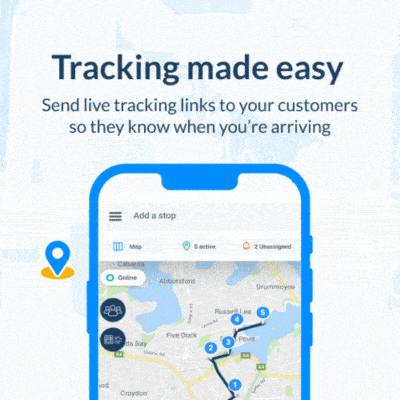Uber Freight is setting a new standard in the logistics and transportation industry with the pilot launch of its innovative scheduling application programming interface (API).
The scheduling API follows the Scheduling Standards Consortium’s (SSC) Technical Standard guidelines. It promises enhanced scheduling capabilities to change the way carriers, shippers, and receivers manage appointments.
Uber Freight’s new scheduling API
The goal, when creating the API, was to address the challenge of scheduling inefficiency since it contributes to “a significant cost in servicing the load,” Uber Freight says in a statement. These challenges also cause delays in setting appointments and increasing lead times.
The development team has been testing the scheduling API within the company’s brokerage business.
Their findings? “[We] saw early success in getting loads made available within the digital marketplace with zero human intervention, and loads are ready for coverage as much as 75% faster compared to manual scheduling.”
Uber Freight CEO Lior Ron says the API “marks a significant leap forward in streamlining operations for all stakeholders in the freight ecosystem. […] This innovation is just the beginning of transformative changes.”
What does this mean for shippers and carriers?
With faster appointment scheduling, shippers can now reduce lead times and improve shipping preparation times since the appointment booking process is streamlined. They also have access to real-time insights, and can foster “stronger partnerships with carriers,” Uber Freight says.
For carriers, the simplified integrations “eliminates the need for multiple logins” while making data entry more manageable. With the improved appointment accuracy, errors and miscommunication mishaps are reduced.
Carriers will also benefit from the increased operational efficiency by optimizing driver schedules and mitigating facility congestion. Subbiah says the goal is to help carriers and shippers “gain the speed, efficiency, and savings they need to get and stay ahead with technology at the core.”
Ron adds: “This development not only delivers tangible benefits but also reflects our commitment to drive positive change in the broader industry. It is the culmination of the great work carried out by the SSC and reinforces our dedication to providing efficiency, speed, and savings.”
Early test feedback
When Logistics Management asked what the feedback from Uber Freight’s shipper and carrier partners had been like, Raj Subbiah, Uber Freight’s head of product, described the findings as “very exciting.”
“For carriers and brokers, just the cost to schedule a load can be up to $10, and delays in locking in appointment times increases carrier cost due to compressed lead times. Now, we’re seeing loads available in our marketplace almost instantaneously — this means better lead time for shippers and better carriers matched to the load.”
Meanwhile, the SSC says the project would break down barriers which, in the past, “hindered efficient data sharing among shippers, carriers, and brokers.”
The active pilot of the Uber Freight scheduling API will be released during the second half of 2024.
Share this article
About the author
Cheryl has contributed to various international publications, with a fervor for data and technology. She explores the intersection of emerging tech trends with logistics, focusing on how digital innovations are reshaping industries on a global scale. When she's not dissecting the latest developments in AI-driven innovation and digital solutions, Cheryl can be found gaming, kickboxing, or navigating the novel niches of consumer gadgetry.














